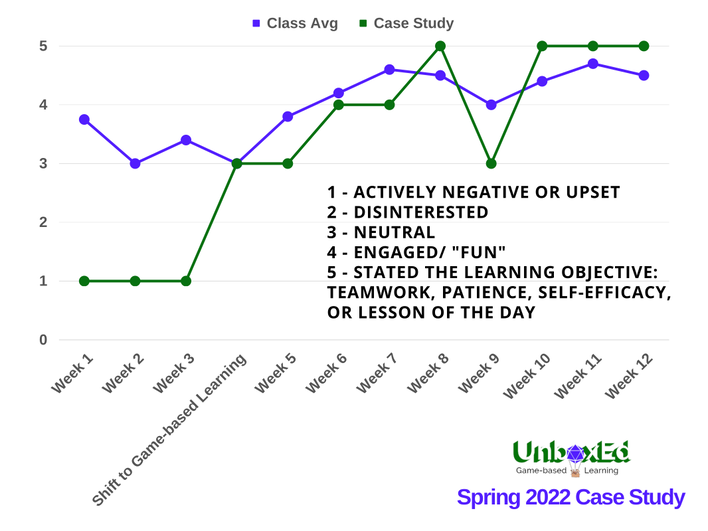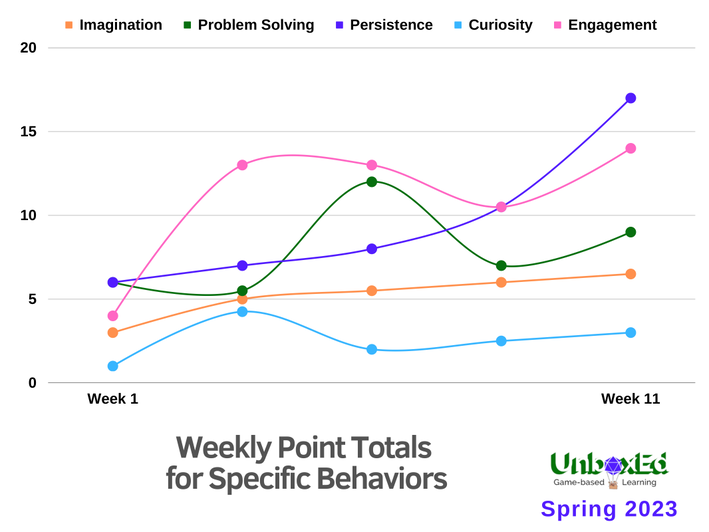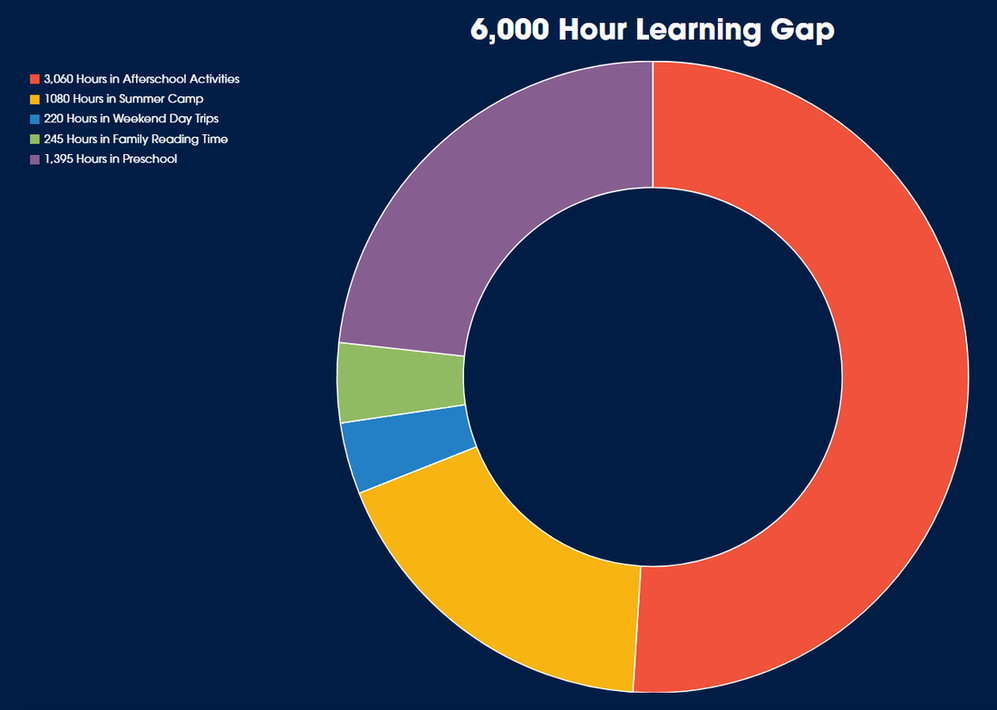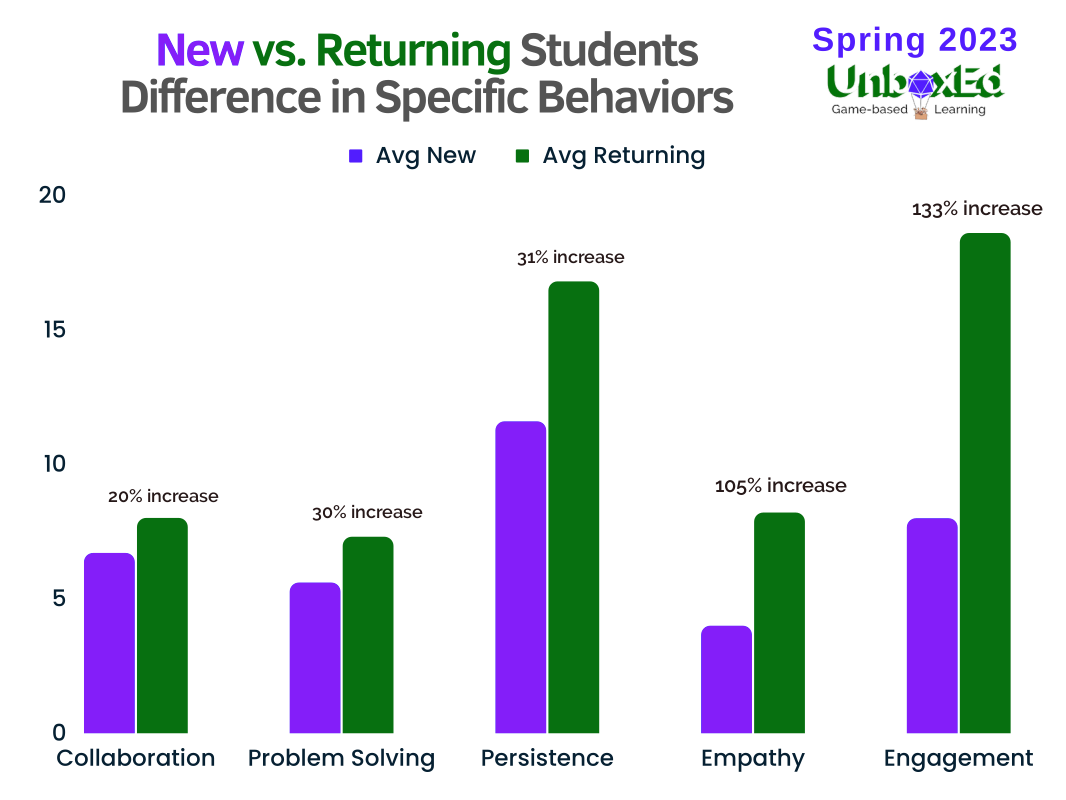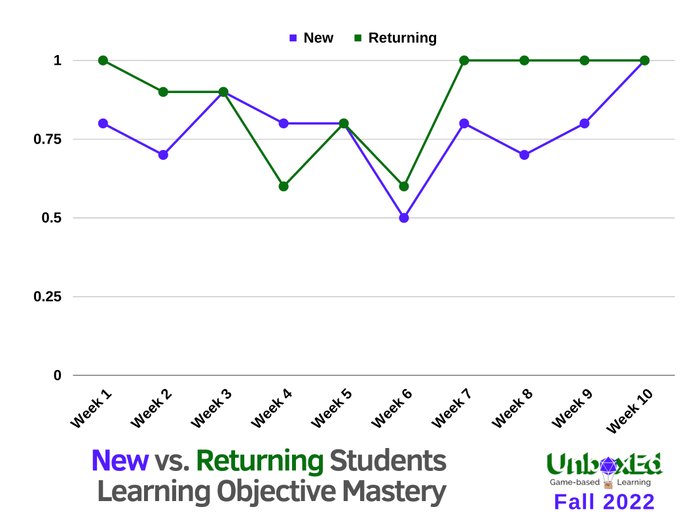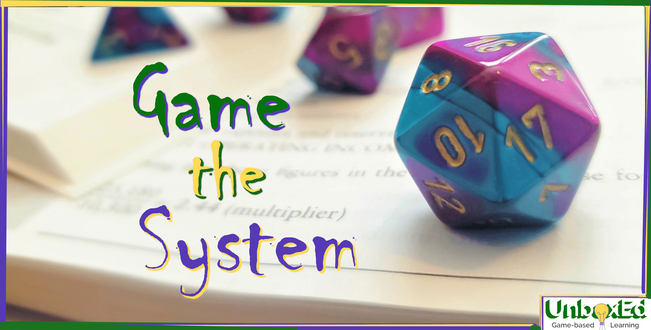UnboxEd UndEr the microscope
Our Process
Our courses begin with two questions:
Who do you want to be?
and
What are you interested in?
We then craft board games to reinforce concepts and exercise the left brain, while a semester-long role-playing campaign weaves content, imagination and fun into concrete knowledge. Students work together to explore, experiment and grow in a world full of dynamic civilizations, mysteries, adventures and course-specific challenges.
Fantasy worlds and characters provide a safe playground for kids to take risks with self-expression and confront social-emotional conflict. Additive Scoring means that students begin at zero and continuously gain skills, points, and confidence upon achieving goals. They can focus on personal strengths and identify with their unique contribution to the group. No permanent failure or punitive grades. This model breeds lifelong learners.
Fantasy worlds and characters provide a safe playground for kids to take risks with self-expression and confront social-emotional conflict. Additive Scoring means that students begin at zero and continuously gain skills, points, and confidence upon achieving goals. They can focus on personal strengths and identify with their unique contribution to the group. No permanent failure or punitive grades. This model breeds lifelong learners.
This data follows an emotionally-volatile student who started the semester nearly stabbing a classmate with a pencil, but grew to become a reliable contributor once we built his love of Encanto into a world he could experience in any way he chose.
Three semesters and over 60 students have shown outcomes we are excited to build upon.
Disadvantaged students are in desperate need of quality afterschool and summer programming.
One of our toughest challenges is combatting digital FOMO. We're making headway.
Previous students becoming models and mentors. Just ask our alumni-turned-instructor, Felix.
Student Progress
Besides demonstrable gains in Persistence, Empathy, Problem Solving and Imagination, our students have gone on their first job interviews, forged solid friendships, and saved the world from drought, greed, and vengeful princes.
But mostly, we remember that they're kids. If we're all laughing and sharing an afternoon of fun, socialization and imagination with zero screens in sight, that's when us adults tend to learn something.
But mostly, we remember that they're kids. If we're all laughing and sharing an afternoon of fun, socialization and imagination with zero screens in sight, that's when us adults tend to learn something.

